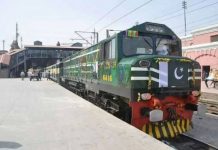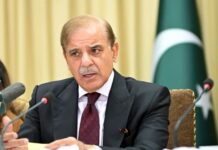LAHORE: Federation of Pakistan Chambers of Commerce & Industry (FPCCI) President Irfan Iqbal Sheikh on Wednesday said that free-falling rupee has reached a point where it has become a threat to the national security as LCs for petroleum imports are being opened at a much higher rate than the intra-bank rate, predicting that a grave law and order situation might emerge in case of any fuel shortages for transportation and electricity generation.
He warned all the authorities that the country was not far from a Sri Lanka-like scenario and that the government must take immediate radical decisions to control the situation.
Sheikh emphasized that SBP can not continue with the free-floating exchange rate and suggested that the central bank should apply regulatory tools to minimise speculation, uncertainty, hoarding, malpractices and misinformation.
“We do not even have enough foreign exchange reserves to cover two months of imports,” he said.
The FPCCI chief noted that the trade deficit for FY22 clocked at a record $48.66 billion which translates in to more than $4 billion a month on an average; while it was $30.96bn in the previous fiscal year, i.e. FY21, showing an increase of 57 per cent.
He has proposed that the government announce the expected inflows of dollar through all sources to put a halt to the uncertainty, chaos and rumor-mongering in the market, i.e. IMF, World Bank, ADB, IDB; and, other multilateral & bilateral grants, loans and financing facilities.
Sheikh lamented that despite a bloodbath in the foreign exchange, the government has failed to appoint a governor for the SBP, saying that it reflects poorly on the government’s seriousness to address the situation.
The FPCCI president said that U.S, E.U. and India have kept their interest rates negative just to keep their economies afloat while Pakistan has raised the interest rate to 15 per cent and financing is not available to businesses from commercial banks at less than 17 percent. “No business can repay their loans with such high inflationary pressures and such high interest rates,” he added.
Meanwhile, AKD Group Chairman Aqeel Karim Dhedhi expressed his shock that despite the fact that many numbers such as international oil prices, declining edible oil prices and better supplies of many other commodities showing improvement over the last few weeks, the government has failed to rein in inflation.
He added that although imports are expected to be considerably lower this month as compared to the last couple of months, the rupee free fall is adding fuel to the uncertainty.
























